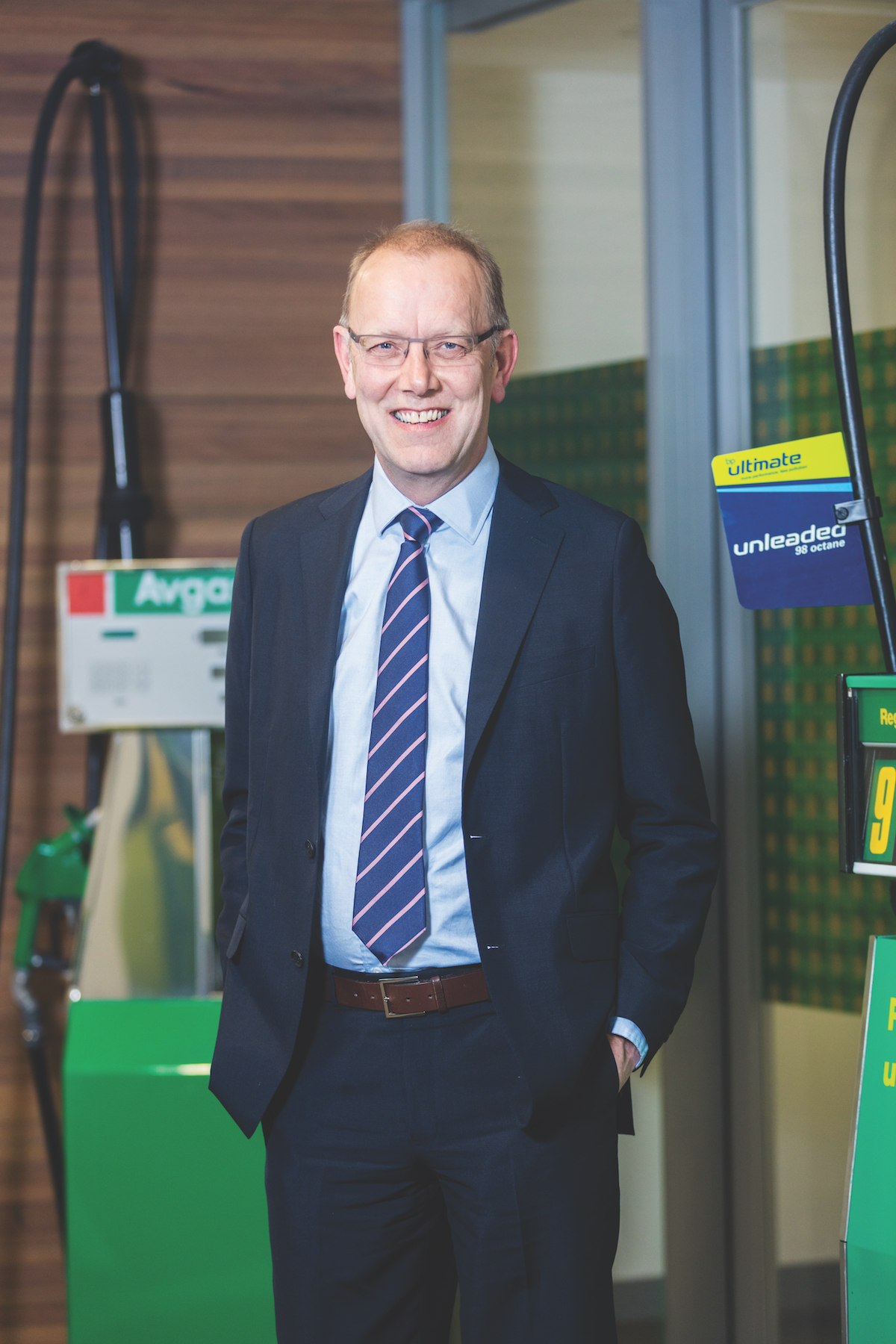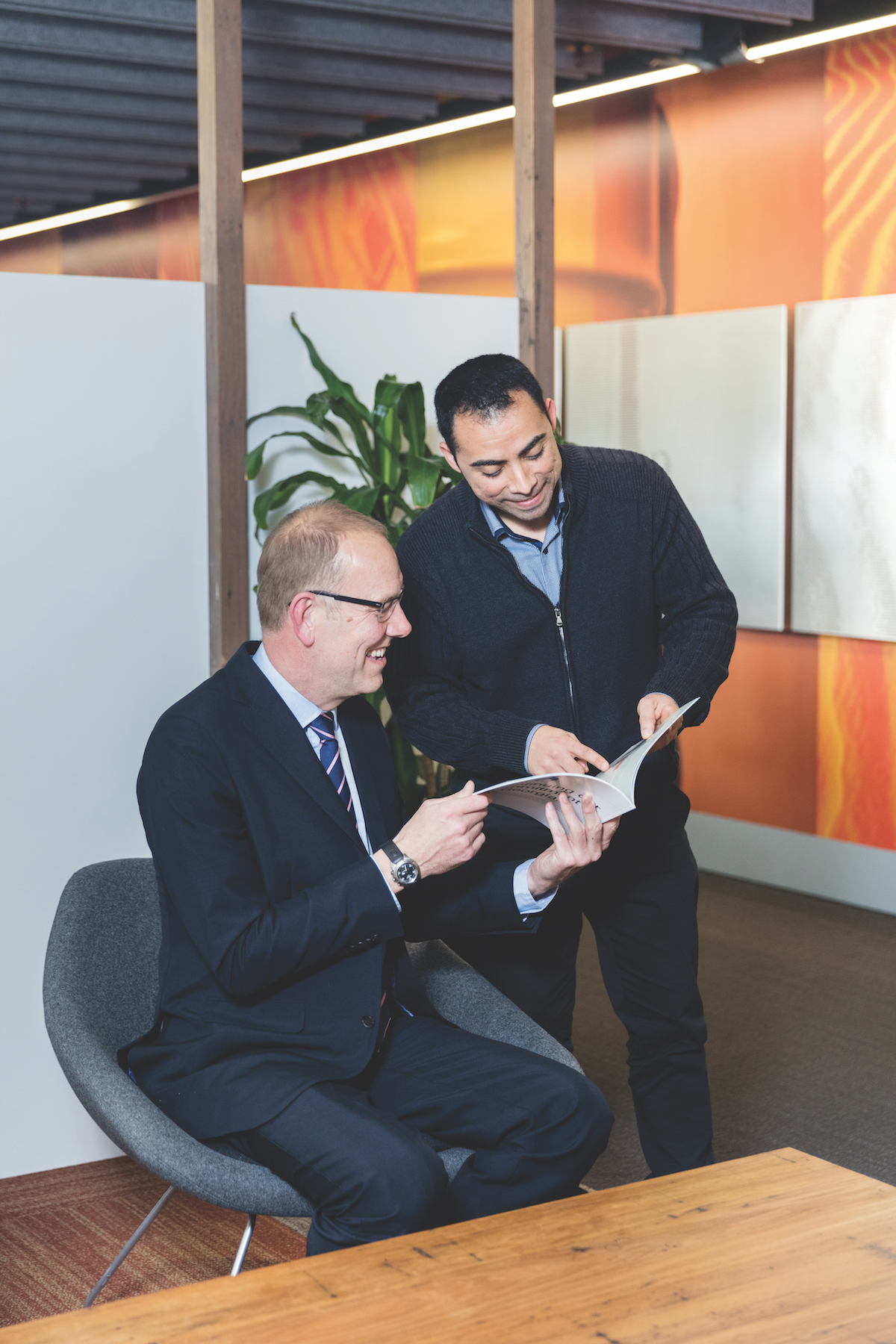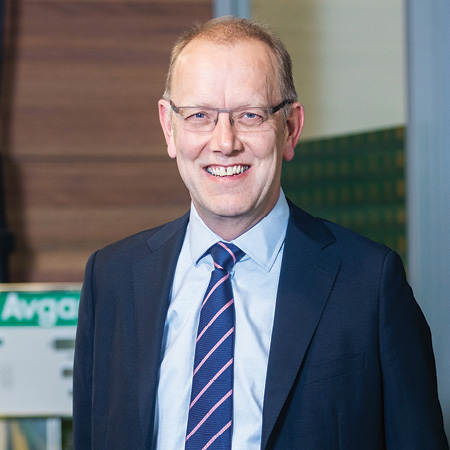Steeped in more than a century of global history, BP is a company that has helped to shape the world as we know it. From navigating peaks and troughs in the Middle Eastern economy to driving the uptake of the automobile industry, and even contributing to British defence efforts in WWII, BP has played a significant role in many countries.
The role of Australia in BP’s history is not obvious; however, the business has had a strong presence Down Under for almost 100 years and was actually founded by a man living in Australia, known as William Knox D’Arcy — a British lawyer who expatriated to invest in Rockhampton gold mines and began crude-oil exploration and production in the Middle East in 1901.
Today BP’s local business is led by one of its most determined leaders, Andy Holmes, Chief Operating Officer of Fuels Asia–Pacific and Air BP. Andy juggles a range of global and regional responsibilities, including leading and growing BP’s fuels business in Asia–Pacific, overseeing Air BP operations that D’Arcy launched globally, and representing BP’s broader Australian business at a government level. Andy was born in the UK coastal town of Sheerness, and graduated as a chemical engineer in 1985. That same year, he joined BP and has since served in many roles with the company, including heading up its marketing operations in Continental Europe and the company’s global LPG business.
A growing presence in Australia
But Andy’s intense focus over the past three years has been on turning around BP’s business in Australia to make it the leading fuels retailer in the country. It employs more than 5,700 people, operates Australia’s largest oil refinery, located in Perth, and supplies fuel to approximately 1,400 service stations around the country.
“For ground fuels, petrol and diesel, Europe hasn’t grown for around about 10 years now, but Australia is still growing, which makes it very attractive. There’s very intense competition here, and I love it,” he says. “There’s that strong sense of really competing to serve our customers well, and that’s great. I am experienced in going head-to-head with other oil companies, supermarkets and traders; in fighting to serve our customers best.

“We’ve made some tough choices over the last three years to turn the business around, including closing our Bulwer Island Refinery in Brisbane. We have sold our bitumen business, and we have put our terminals and logistics businesses into joint ventures. That’s allowed us to put a lot more investment into the customer-facing part of the business. We are spending dramatically more to be the leading fuels retailer in Australia; we have that track record in other countries, but that’s my ambition for the company here.”
Meeting customer expectations
Andy’s vision has been underpinned by a capital investment of close to $1 billion over the past 3 years.
“It’s not just a matter of launching something new and then sitting back; you have to be working on these new offers all of the time because that’s what consumers expect now.” – Andy Holmes
In 2015, BP launched an Australian-first partnership with frequent flyer loyalty program Velocity, a new generation of premium fuels, and the industry’s first app, BPMe, which allows customers to pay for fuel on their smartphones.
“It’s not just a matter of launching something new and then sitting back; you have to be working on these new offers all of the time because that’s what consumers expect now — we need to be innovative, market-leading, really understanding what consumers want and providing it to them,” Andy says.
Seeking out strong partnerships
In other markets around the world, BP has formed successful partnerships, such as with food retailer Marks and Spencer in the UK. “That’s a model that could work here, and we are very open to strong partners that we can work with here in Australia,” he says.
It is clear that Andy’s interest in growing the fuels business in wider Asia–Pacific is equally skewed towards retail consumers. “The potential in some of the markets in the Asia region is enormous — in China we are already there and we see significant growth now and in the future. India and Indonesia are large markets with large populations, and they are of great interest to us too.”

With these markets well served by their local refineries — some two or three times the size of BP’s own Kwinana Refinery in Australia — BP isn’t looking to invest in that end of the supply chain. In Australia though, BP will continue to invest in refining; in fact, in the coming months it will invest approximately $80 million in maintenance activities to keep its refinery running safely for years to come.
While Andy says that most of his global counterparts on the Downstream Senior Executive Team are based in London, and that he travels there often, he is fortunate to be on the ground in Australia — thanks to his love of the country and the more hands-on management it allows.
“We see the growth potential here; the growing gross domestic product (GDP) and policy frameworks which are very conducive to investment. I am proud to be living in Australia and running a very large regional business. I have worked around the world and I am forever surprised and delighted by the excitement and potential of the Australian people — it’s a great place to do business.”



